Police detain 350 people as 'minority' of anti-austerity protesters clash with riot officers outside new ECB headquarters in Frankfurt
The demonstration, which the majority conducted peacefully, was organised by a group called Blockupy
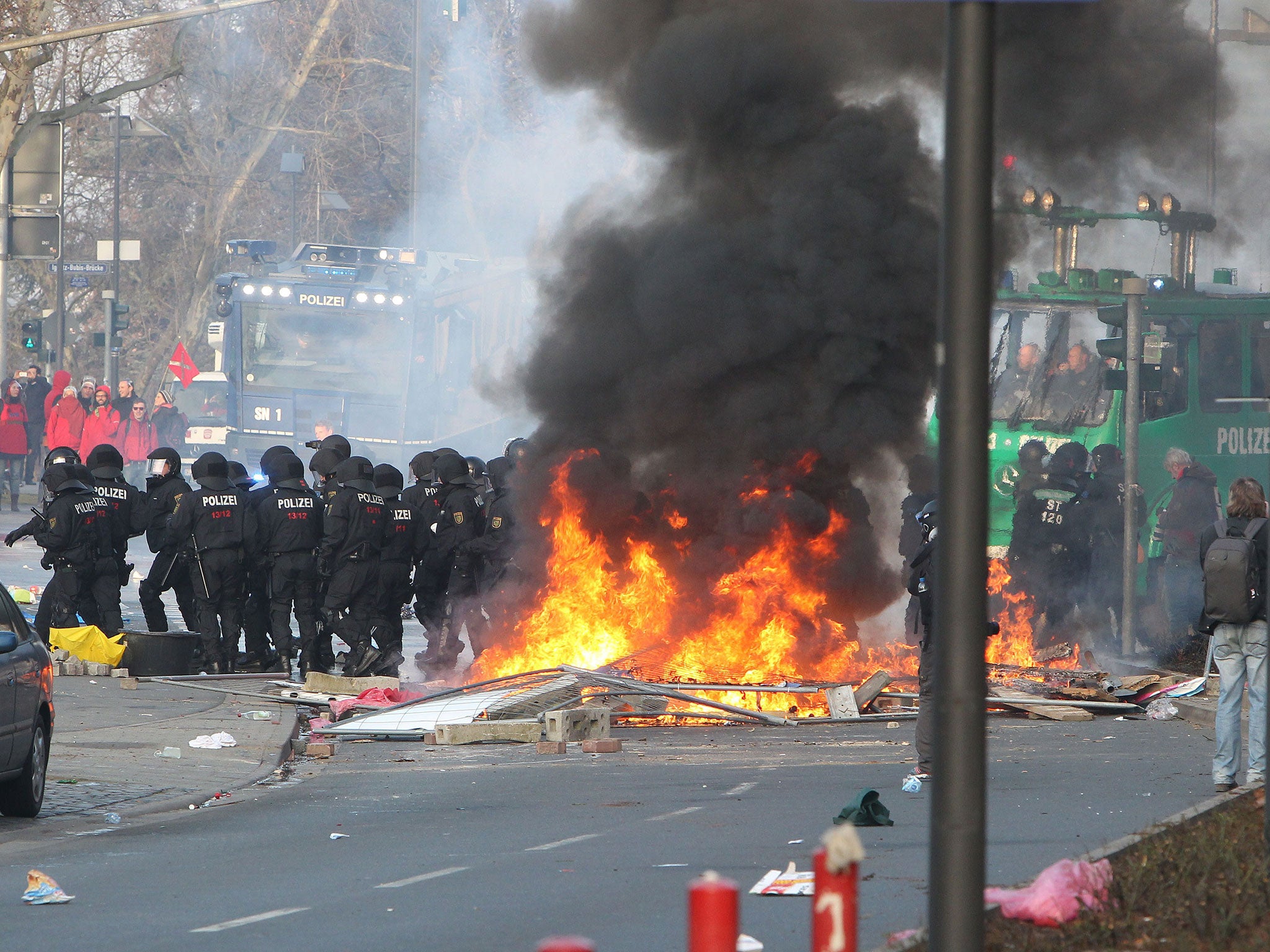
Your support helps us to tell the story
From reproductive rights to climate change to Big Tech, The Independent is on the ground when the story is developing. Whether it's investigating the financials of Elon Musk's pro-Trump PAC or producing our latest documentary, 'The A Word', which shines a light on the American women fighting for reproductive rights, we know how important it is to parse out the facts from the messaging.
At such a critical moment in US history, we need reporters on the ground. Your donation allows us to keep sending journalists to speak to both sides of the story.
The Independent is trusted by Americans across the entire political spectrum. And unlike many other quality news outlets, we choose not to lock Americans out of our reporting and analysis with paywalls. We believe quality journalism should be available to everyone, paid for by those who can afford it.
Your support makes all the difference.Police in Frankfurt detained at least 350 people after anti-austerity protesters clashed with riot officers outside the new headquarters of the European Central Bank (ECB) in Frankfurt, Germany.
Just hours before the ceremonial opening of the €1.3 billion building, thousands of people descended on the area, leading to a scrum that saw seven police cars, tyres and rubbish bins set on fire.
Several thousand police officers pursued what they said was a minority of violence-minded activists, as the bulk of protesters conducted themselves peacefully ahead of a rally in the city's main square, the Roemerberg, which attracted 10,000 people.
Water cannons were employed in an attempt to make a path through the throng and at least 14 officers suffered minor injuries, police said. A further 80 suffered from contact with some kind of irritating gas or liquid during the confrontations but recovered and later returned to duty.
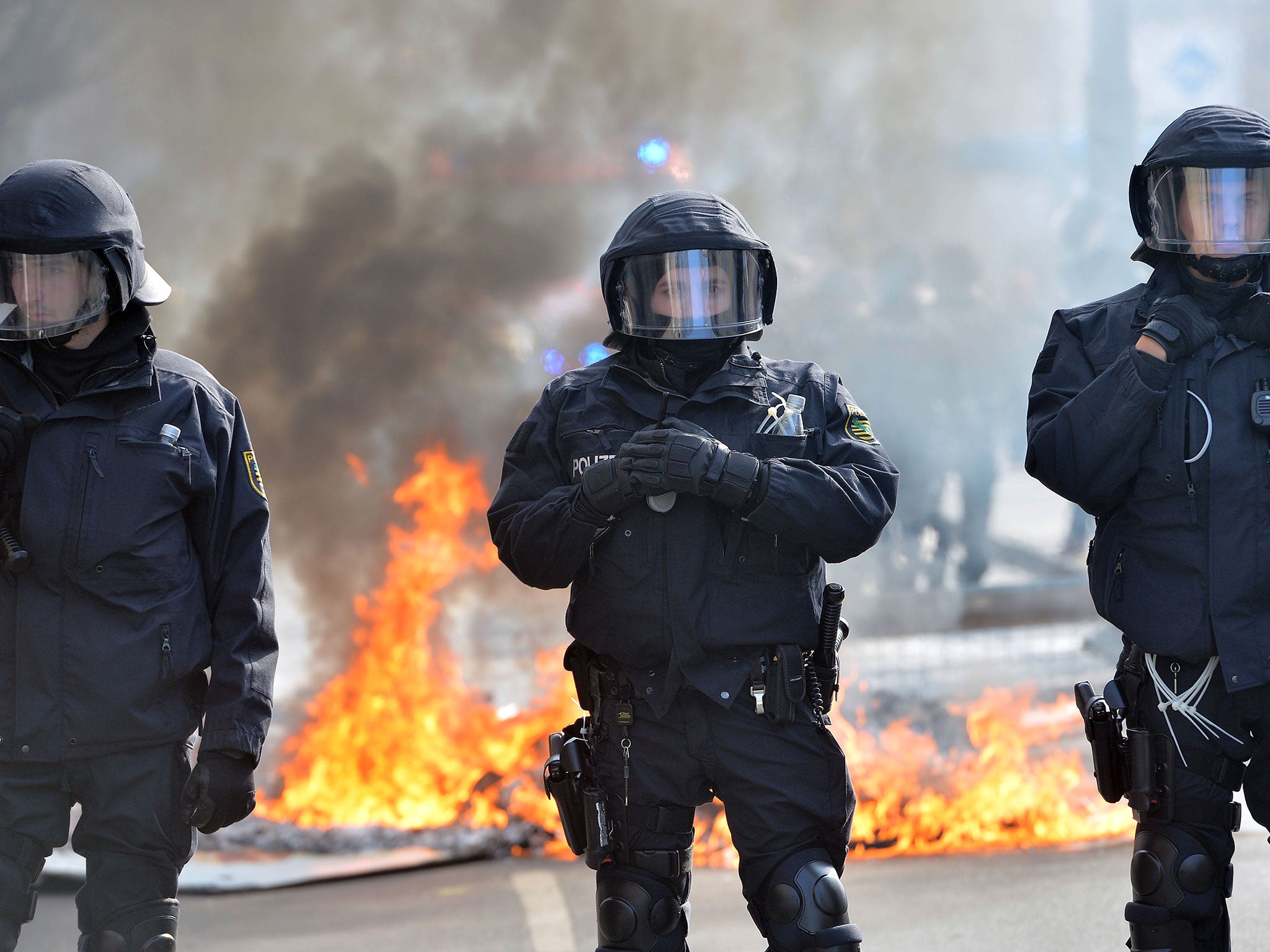
The protest was organised by a group called Blockupy, an alliance including trade unions and anti-capitalist groups, which is named after the 2011 Occupy Wall Street movement.
Greek Finance Minister Yanis Varoufakis last week criticised ECB policy towards Athens as "asphyxiating", a criticism also made by the protest organisers.
Leading activists distanced themselves from the violence. Ulrich Wilken, a left-wing deputy in the regional parliament, said at news conference that he was "both depressed and horrified by what I experienced myself and saw in pictures".
However, the ceremony went ahead, with ECB President Mario Draghi saying the new building was "a symbol of what Europe can achieve together".
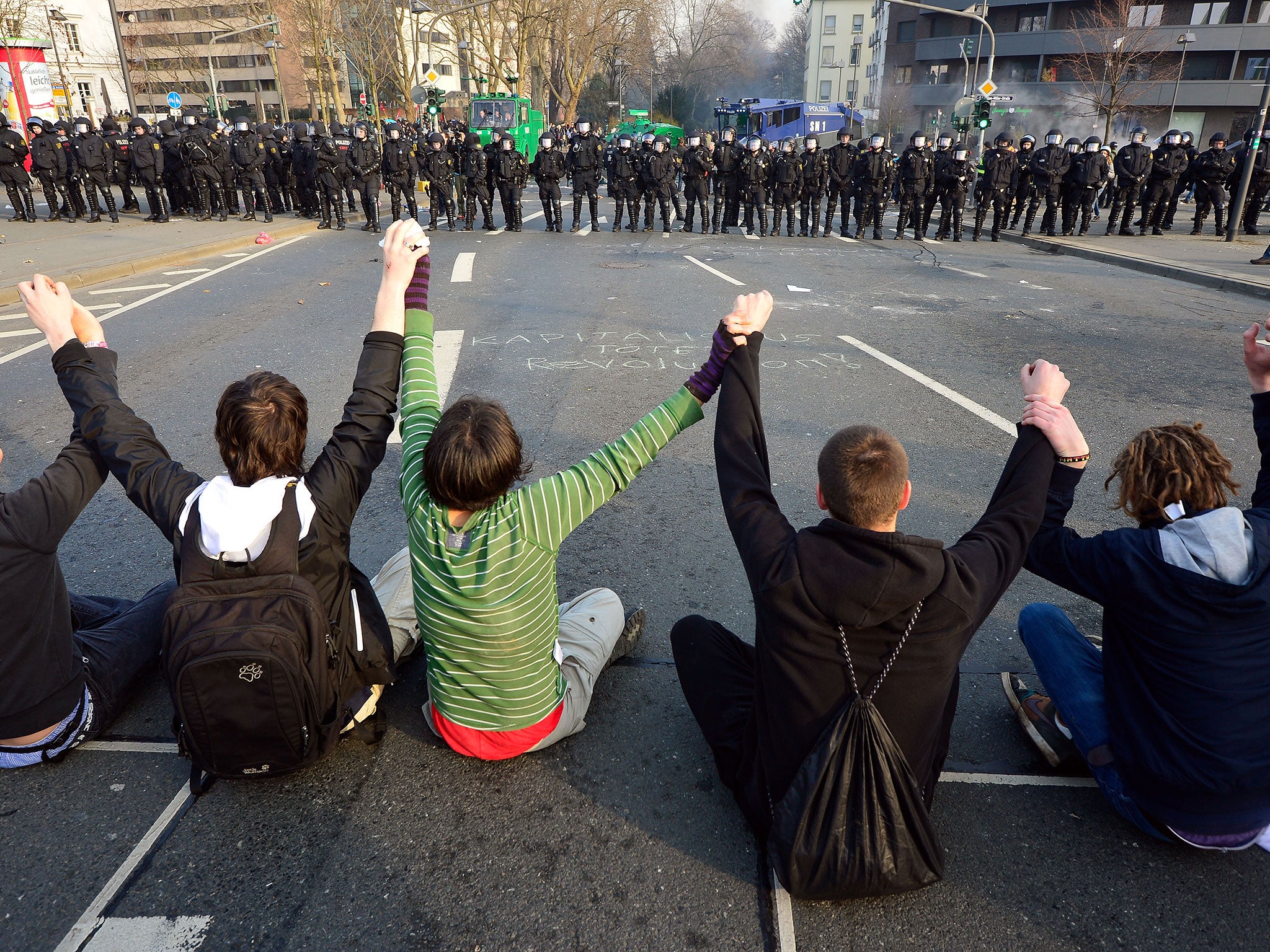
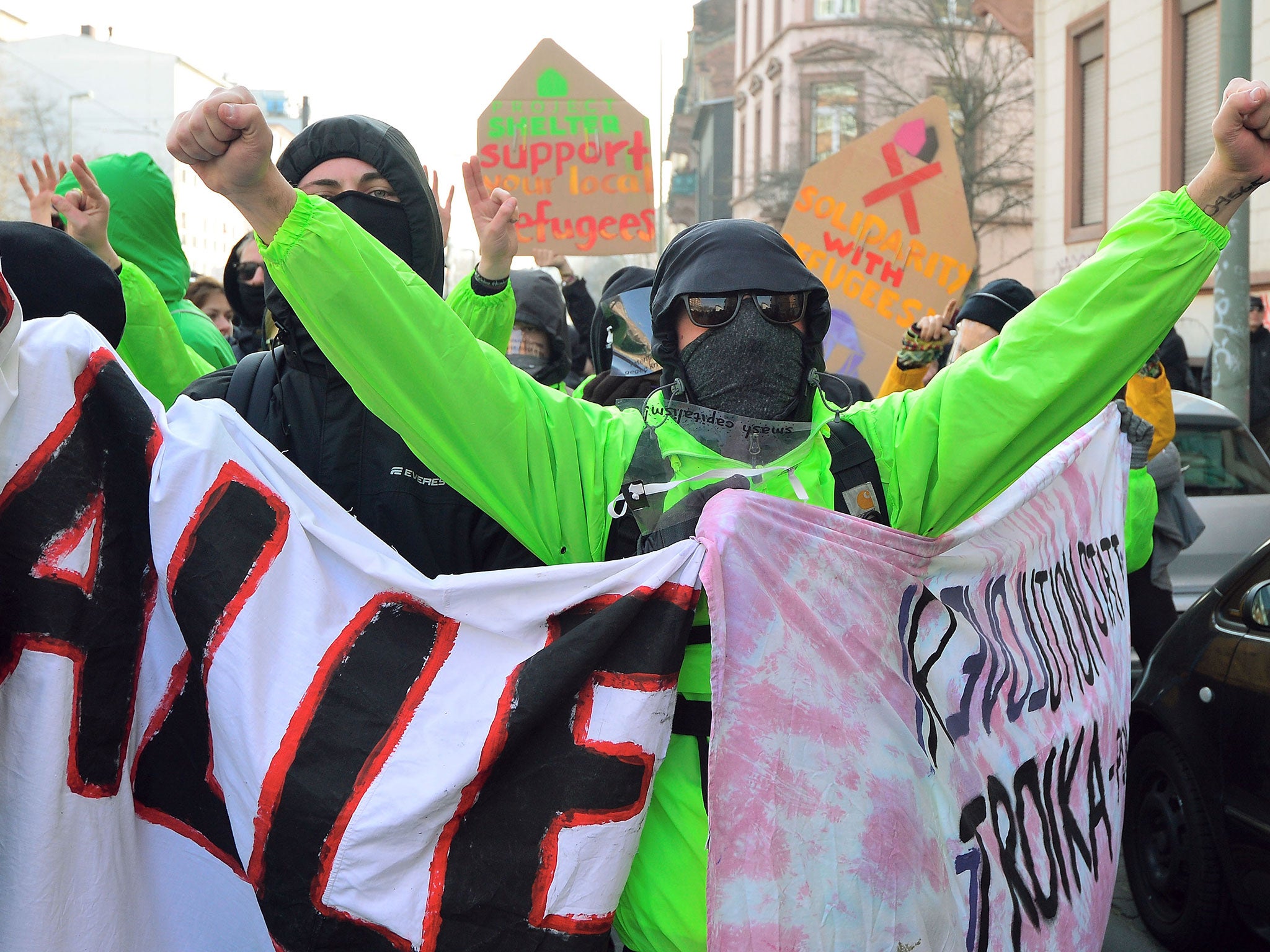
At the ECB ceremony, Tarek Al-Wazir, economy minister for the Hesse region, denounced the violence. He said the protesters "have no answers... but they have some of the right questions," adding that "austerity can indeed be self-defeating".
He and several other German politicians including Vice Chancellor Sigmar Gabriel said the ECB was the wrong target.
Draghi has urged more spending by governments that are in good financial shape such as Germany to help lift the economy and reduce unemployment. That advice has been ignored by the German government, which has stressed the need to balance its budget and pressed others to restrain spending.
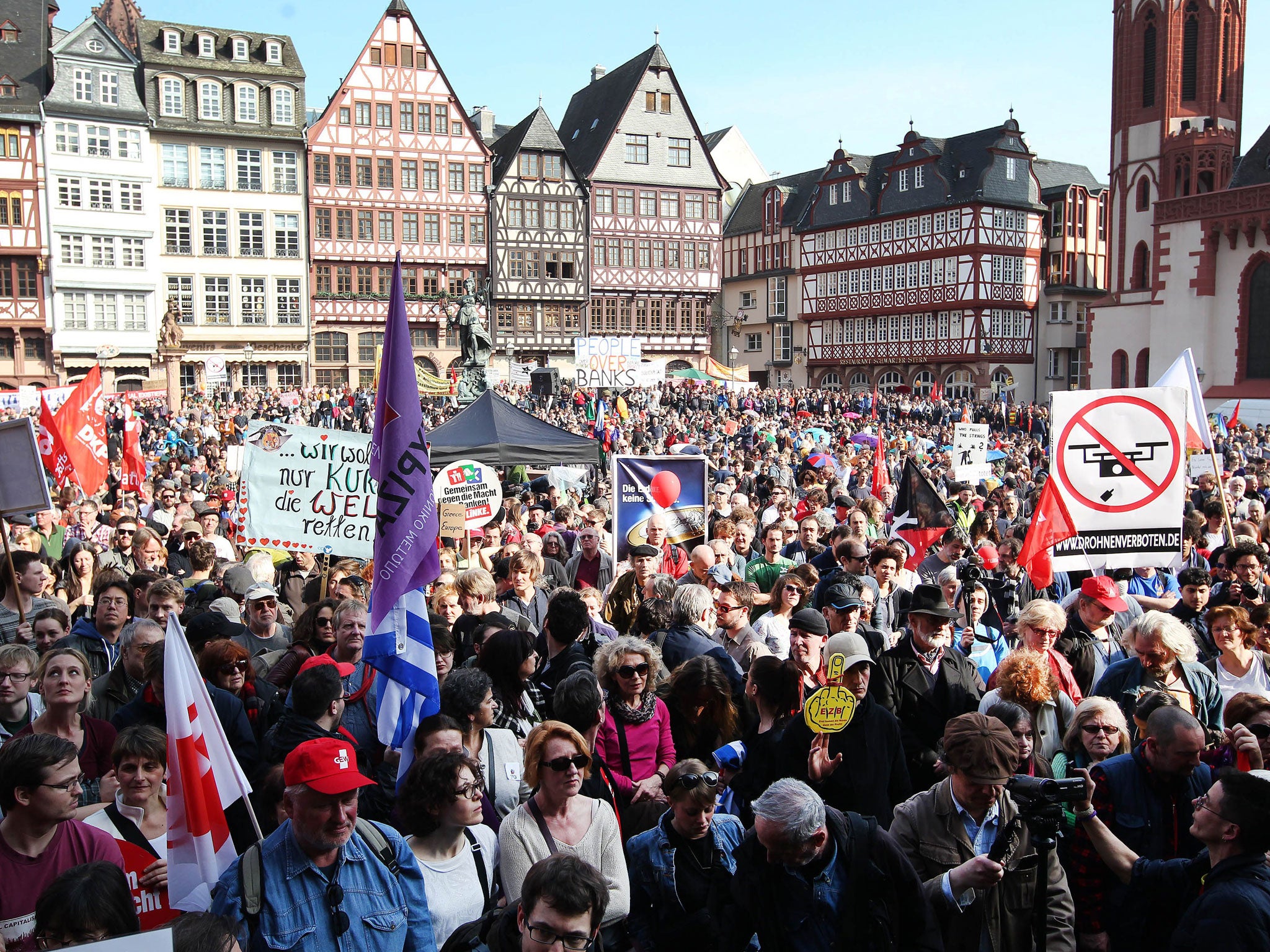
The ECB, along with the European Commission and International Monetary Fund, is part of the so-called "troika" that monitors compliance with the conditions of bailout loans for Greece and other financially troubled countries in Europe.
Those conditions include spending cuts and reducing deficits, moves that are aimed at reducing debt but have also been blamed for high unemployment and slow growth.
Additional reporting by agencies
Join our commenting forum
Join thought-provoking conversations, follow other Independent readers and see their replies
Comments